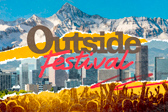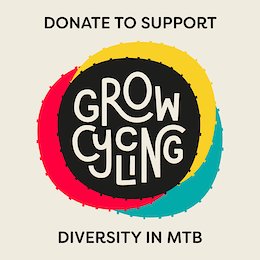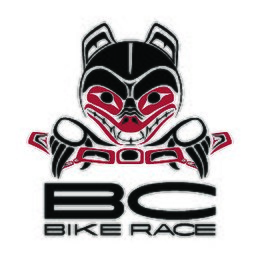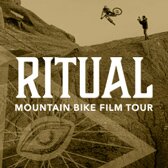Mike Kazimer
Today
 Vivo Cycling Previews All-Aluminum 12-Speed Derailleur
Vivo Cycling Previews All-Aluminum 12-Speed Derailleur
Fingers crossed there's a purple ano version in the works.
Sarah Moore
Today
 The Ultimate Recap of Sea Otter 2024
The Ultimate Recap of Sea Otter 2024
Here's everything you could ever want to know about Sea Otter 2024.
Henry Quinney
Today
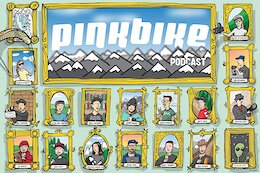 The Pinkbike Podcast: Is World Cup XC Actually Worth Watching?
The Pinkbike Podcast: Is World Cup XC Actually Worth Watching?
Our resident XC expert, Sarah Moore, a former World Cup racer, explains to Henry why XC has never been so good.
Tom Booker
Today
 Video: Reece Potter, Conor Macfarlane & Friends Bring the Gnar to Queenstown in 'Tour De Yeah, Nah'
Video: Reece Potter, Conor Macfarlane & Friends Bring the Gnar to Queenstown in 'Tour De Yeah, Nah'
Serious gnar inspired by the Canadian event.
Outside Online
Today

Giant Manufacturing says Stages owed it $14 million for production.
Cycles Devinci
Today
 Devinci Announces All-New E-Troy Lite & Yoann Barelli Shreds It
Devinci Announces All-New E-Troy Lite & Yoann Barelli Shreds It
The Troy has 150mm of rear travel, mixed wheels, and a Bosch Performance Line SX 55Nm motor with a 400Wh battery.
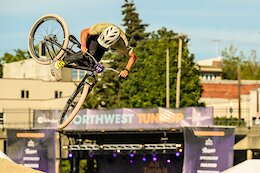 NW Tune-Up Festival Announces 2024 Music Lineup
NW Tune-Up Festival Announces 2024 Music Lineup
The Northwest Tune-Up festival returns for its third year, July 12–14, and promises another summer weekend filled with music, bikes, art, and PNW energy.
Official Crankworx
Today
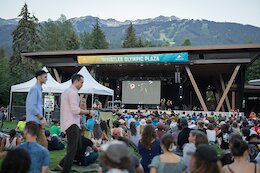 Photographers: Applications Are Now Open for the Crankworx Whistler Deep Summer Photo Challenge
Photographers: Applications Are Now Open for the Crankworx Whistler Deep Summer Photo Challenge
For the first time, Crankworx will be taking applications from photographers who want to take part in the Deep Summer Photo Challenge.
ForbiddenBike
Today
 Video: Emmy Lan's Off Season Training on Vancouver Island
Video: Emmy Lan's Off Season Training on Vancouver Island
Emmy Lan, the reigning U21 Enduro World Series champion, takes on the off-season in her home of Comox, BC.
Pinkbike Staff
Mar 18, 2024
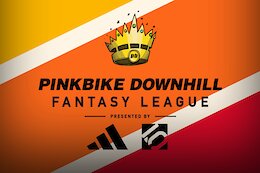 Pinkbike's DH Fantasy League: Get Your Team On The Line - Fort William is in 10 DAYS!
Pinkbike's DH Fantasy League: Get Your Team On The Line - Fort William is in 10 DAYS!
Now with dynamic rider pricing, this year's fantasy league will be more interesting than ever, and there are some great prizes up for grabs too.
Wyn Masters
Today
 Video: WynTV from the 2024 Sea Otter Classic Slalom
Video: WynTV from the 2024 Sea Otter Classic Slalom
Wyn hits the Sea Otter classic Dual slalom, the unofficial world championships of slalom for 2024 to see what went down!
Dario DiGiulio
Apr 23, 2024
 Downhill Bikes of Sea Otter - Part 2
Downhill Bikes of Sea Otter - Part 2
Five more downhill machines, most built for speed and one built for mega hucking.
Outside Online
Apr 23, 2024
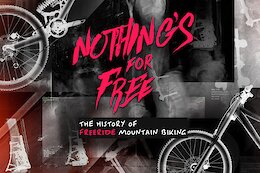
The iconic history of freeride will be available to own from April 23rd.
Dakine
Today
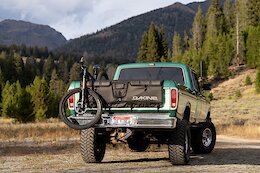 Dakine Announces The Universal Pickup Pad
Dakine Announces The Universal Pickup Pad
The small size secures five bikes, while the large size accommodates up to seven.
Izzy Lidsky
Apr 23, 2024
 3 Initiatives at Sea Otter Pushing for a More Inclusive Bike Industry
3 Initiatives at Sea Otter Pushing for a More Inclusive Bike Industry
New bike tech and exciting race results weren't the only things making a splash in the industry at Sea Otter Classic.
Dario DiGiulio
Apr 23, 2024
 Dario's Final Sea Otter Randoms
Dario's Final Sea Otter Randoms
"I have become the otter...I know not of bicycles or their constituent parts, I know only of clams, rocks, and water."
Matt Beer
Apr 23, 2024
 A Deeper Look At The Latest Trinity MTB Gravity Project
A Deeper Look At The Latest Trinity MTB Gravity Project
Mic Williams explains how he has applied the WRP Centre Hub to a custom built gearbox.
Outside Online
Apr 23, 2024

Unable to race at Sea Otter due to injury, pro off-road cyclist Caroline Dezendorf instead became a judge — of cappuccino, cold brew, and latte art.
bikebigwhite
Apr 23, 2024
 RAW Video: Bas Van Steenbergen Rides Big White in 'Bas Knows Best'
RAW Video: Bas Van Steenbergen Rides Big White in 'Bas Knows Best'
Bike park season is coming!
Sarah Moore
Apr 22, 2024
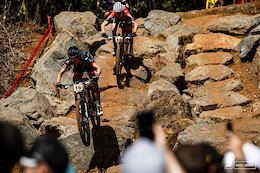 5 Things We Learned from the Araxá XC World Cup 2024
5 Things We Learned from the Araxá XC World Cup 2024
Christopher Blevins just beat Tom Pidcock's unofficial record for number of passes in a World Cup race, the most hotly contested Olympic spots, and more.
Seb Stott
Apr 23, 2024
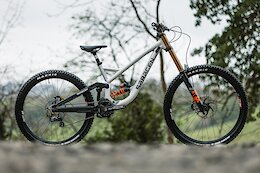 First Ride: All-New Saracen Myst
First Ride: All-New Saracen Myst
Saracen's redesigned race bike is now available to buy
Izzy Lidsky
Apr 22, 2024
 Hidden Treasures From the 'For Sale' Fence at Sea Otter 2024
Hidden Treasures From the 'For Sale' Fence at Sea Otter 2024
It's like the Pinkbike BuySell, but in real life.
Izzy Lidsky
Apr 23, 2024
 Photo Story: 'Sea Otter Dual Slalom For Dummies' - A Play by Play of the Race From a First Time Watcher
Photo Story: 'Sea Otter Dual Slalom For Dummies' - A Play by Play of the Race From a First Time Watcher
Dual Slalom as told by someone who had no idea what they were looking at.
sarisnews
Apr 23, 2024
 Saris Announces New Tailgate Pad
Saris Announces New Tailgate Pad
The Small (up to five bike positions) will retail for $219 and the Large (up to six bike positions) is available for $229.
Ravanel-MTB
Apr 23, 2024
 Commencal Les Orres Shows Off 2024 Team Kit & Bike
Commencal Les Orres Shows Off 2024 Team Kit & Bike
The team will be reunited soon in Fort William.
Jakub Vencl
Apr 22, 2024
 Must Watch: Heavy Moves from Jakub Vencl in 'One Nine One'
Must Watch: Heavy Moves from Jakub Vencl in 'One Nine One'
Heavy moves, heavy music, heavy industry.
Brian Park
Apr 22, 2024
 Brian's Randoms from Sea Otter 2024
Brian's Randoms from Sea Otter 2024
The sun was out, and there was SO MUCH interesting new bike tech on display.
Ed Spratt
Apr 22, 2024
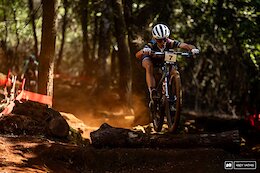 XCO Photo Epic: Araxá XC World Cup 2024
XCO Photo Epic: Araxá XC World Cup 2024
Another weekend of racing in Brazil brought more incredible battles and wild fans for the second round of the 2024 series.
Dario DiGiulio
Apr 22, 2024
 First Look: Deity Releases New Stems, Grips, & Pedals
First Look: Deity Releases New Stems, Grips, & Pedals
Flat Trak, Supervillain, Megattack, and Copperhead all hit the lineup this year.
Archive Navigator
2024 Advertiser List
Brands
Bikes
- Trek
- Specialized
- Devinci
- Rocky Mountain
- Giant Bikes
- Scott
- Kona
- Norco
- Commencal
- NS Bikes
- Santa Cruz
- Yeti
- YT Industries
- Polygon Bikes
- Cube
- Radon Bikes
- Marin
- Guerrilla Gravity
- RSD Bikes
- Propain Bikes
- DMR Bikes
- Canyon
- PRIME Bicycles
- Pivot Cycles
Components
- SRAM
- Shimano
- Race Face
- Industry Nine
- SDG
- Deity
- Hunt Wheels
- One Up Components
- KS
- Rotor Bike Components
- Stan’s NoTubes
- Reverse Components
- RideWrap
- PROLOGO
- Yoshimura Cycling
- TRP Cycling
- Galfer USA
- Bikeyoke
- e*thirteen
- Geo Handguards
Suspension
Tires
Accessories
Coaching and Education
Online Retailers
Resorts/Riding
- Trestle Bike Park
- Bike Parks BC
- Fernie
- Crested Butte
- Big White
- Saalbach Hinterglemm
- Whitefish Mountain Resort
- Visit Tucson
- Monument Trails
- Mountain Bike Park City
 Downhill Bikes of Sea Otter - Part 1
Downhill Bikes of Sea Otter - Part 1 
